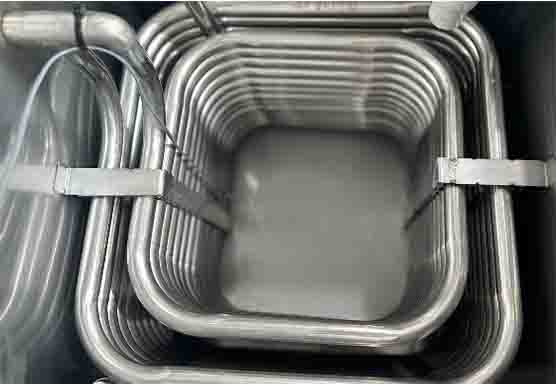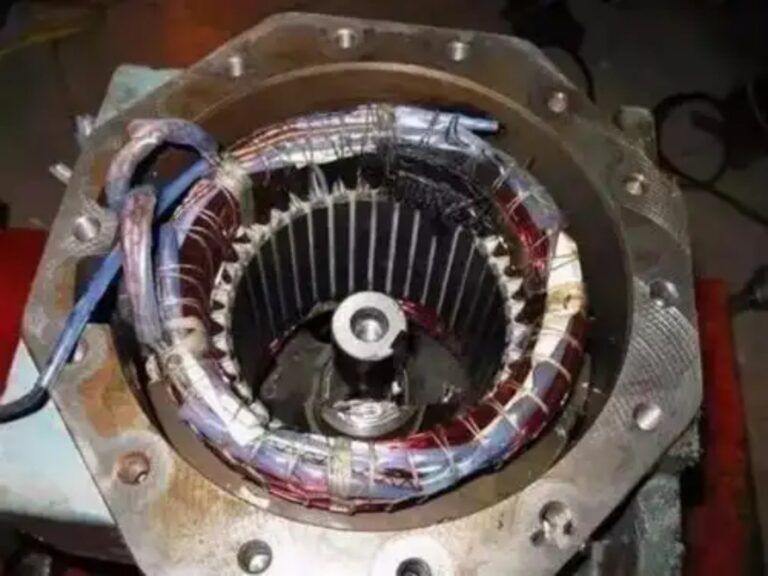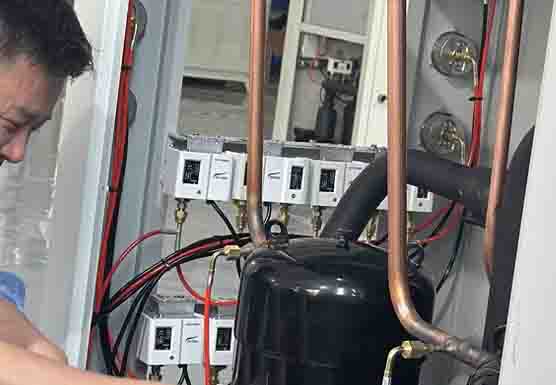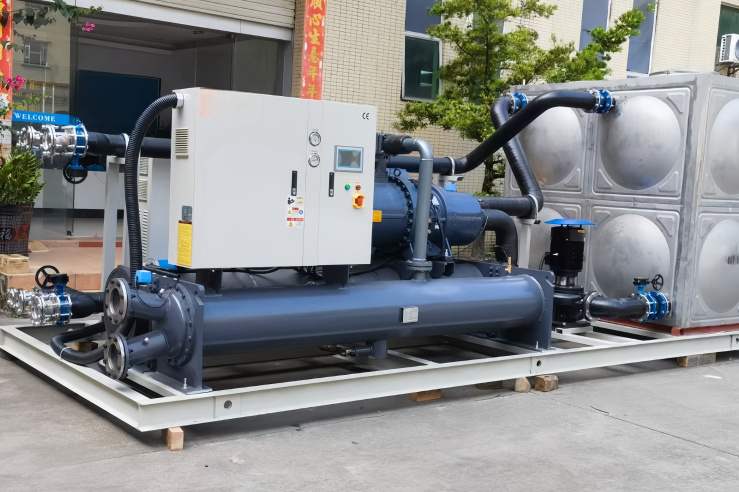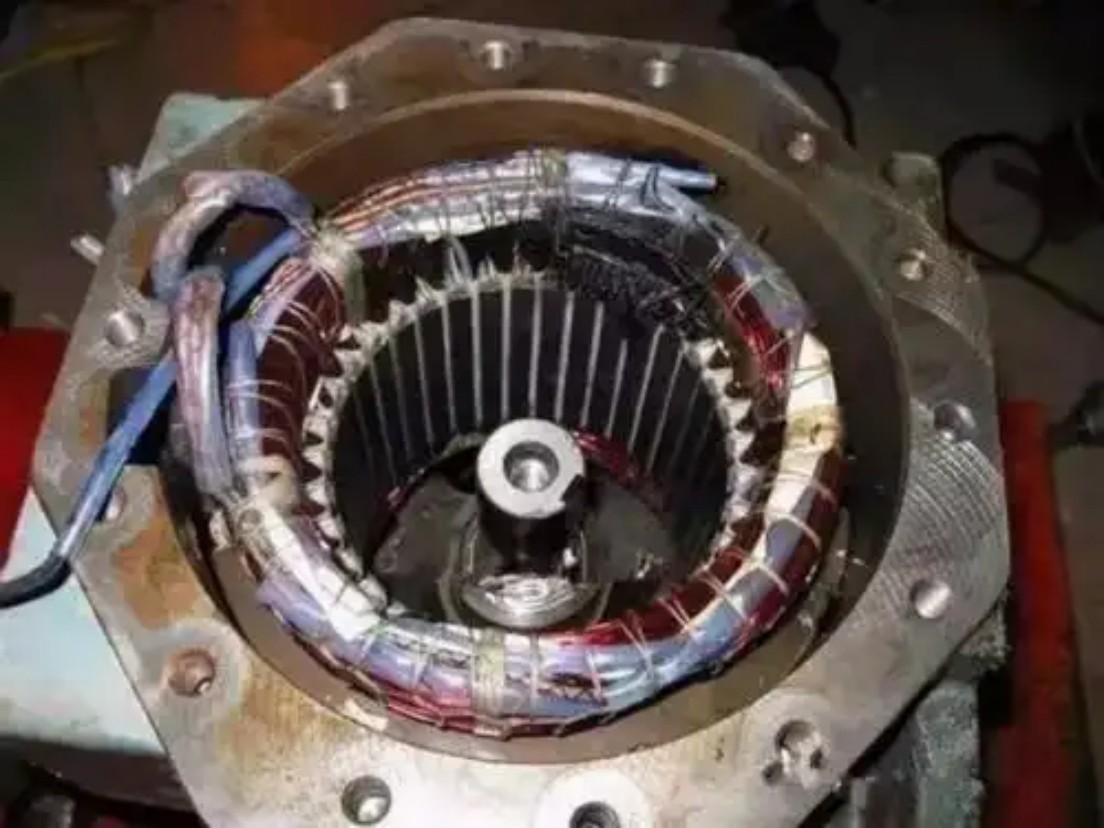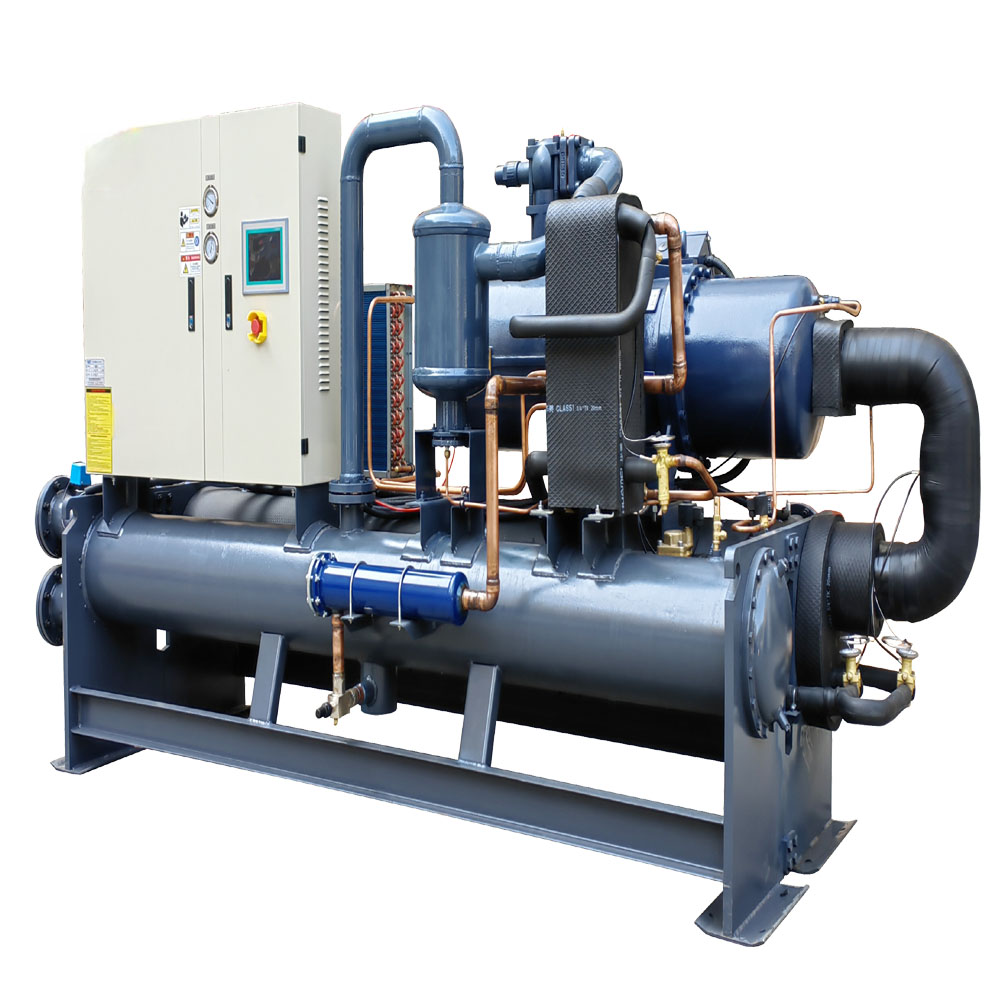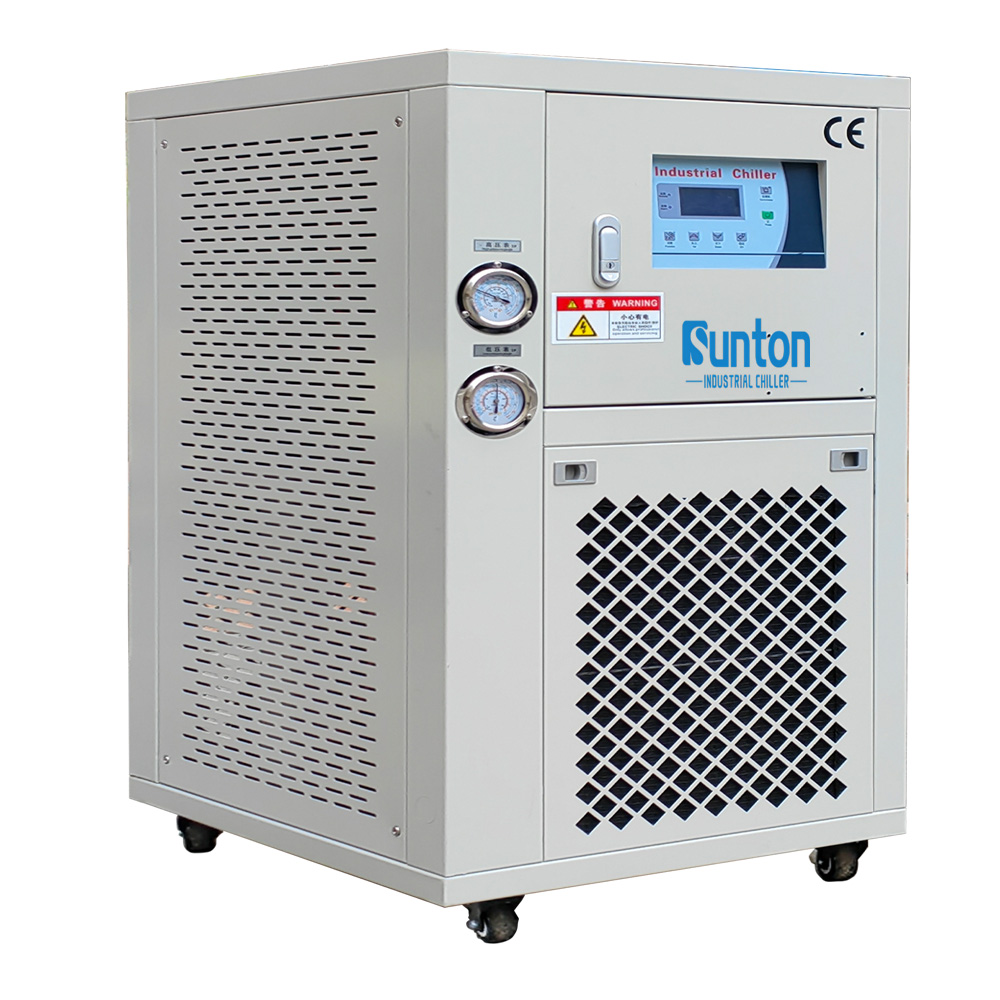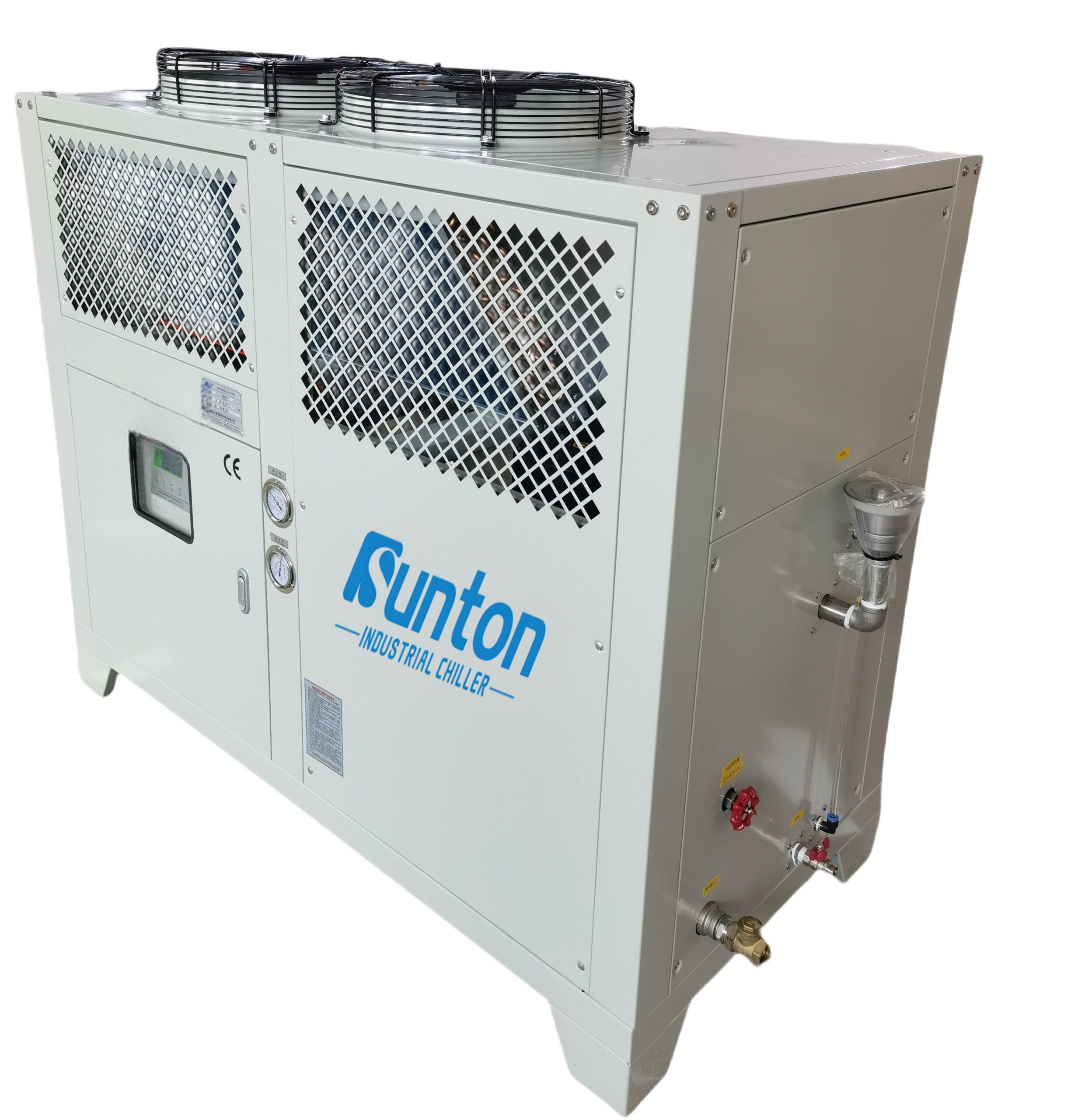-
Далиншань Индустриальный Гуандун
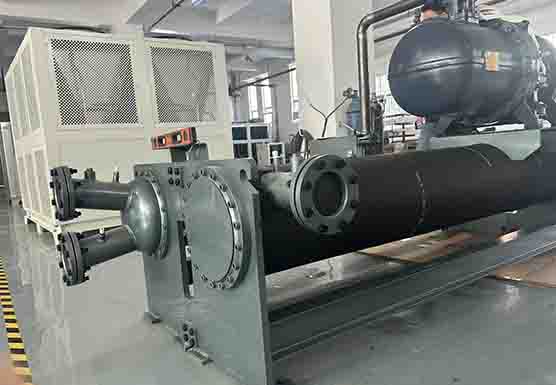
6 преимуществ использования водоохладителей для процессов охлаждения
6 преимуществ использования водоохладителей для процессов охлаждения
В этой статье рассматриваются существенные преимущества использования охладители воды в различных промышленных условиях. Как ведущий промышленный охладитель воды производственное предприятие, мы понимаем, какую важную роль играют эффективные системы охлаждения в поддержании производительности и качества в различных секторах. Это руководство предназначено для предоставления ценной информации о том, как охладители воды может оптимизировать ваш процесс охлаждения, что делает его полезным для прочтения всем, кто стремится улучшить свою деятельность и достичь существенных результатов. возврат инвестиций.
Оглавление
Что такое охладитель воды и как он работает?
А охладитель воды это охлаждение система, которая охлаждает воду путем удаления тепла. Это важный компонент в различных промышленные применения, гарантируя, что машины и процессы работают в оптимальных температурных диапазонах. Основные система охлаждения включает в себя охлаждение цикл, где хладагент циркулирует через ключевые компоненты: испаритель, компрессор, конденсатор, и расширительный клапан.
The охладитель Процесс начинается в испаритель, где хладагент поглощает тепло из прохладная вода, заставляя его испаряться в газ. Это охлаждало хладагент затем сжимается компрессор, увеличивая его температуру и давление. Горячий, высокого давления хладагент Затем газ поступает в конденсатор, где он выделяет тепло и конденсируется обратно в жидкость. Этот процесс облегчается либо с водяным охлаждением или с воздушным охлаждением методы. Наконец, жидкость хладагент проходит через расширительный клапан, что снижает его давление и температуру, подготавливая его к повторному запуску цикла. Основная функция чиллера заключается в передаче тепла из одного места в другое, обеспечивая постоянный приток прохладная вода для различных нужд.
Почему водоохладители необходимы для промышленного применения?
Охладители воды незаменимы во многих промышленные процессы поскольку они обеспечивают точный и надежный контроль температуры. В таких секторах, как производство пластмасс и резины, машиностроение, пищевая промышленность, химическая и фармацевтическая промышленность, поддержание правильной температуры имеет решающее значение для качества продукции, долговечности оборудования и эффективности работы.
Например, в пластмассовой промышленности чиллеры привыкли к прохладный быстро формует и экструдирует продукты, гарантируя, что они сохранят свою форму и качество. В пищевой промышленности и производстве напитков, чиллеры обеспечивают охлаждение для процессов ферментации, пастеризации и хранения, сохраняя свежесть и безопасность продукта. Гарантируя, что процессы запускаются плавно и эффективно, охладители воды играют важную роль в поддержании высоких стандартов производства и удовлетворении потребностей рынка. Стоит отметить, что наши Охладители молочного молока специально разработаны с учетом строгих требований молочной промышленности, обеспечивая оптимальное охлаждение и хранение молока.
Чиллеры с воздушным и водяным охлаждением: что подходит именно вам?
Выбирая между с воздушным охлаждением и чиллеры с водяным охлаждением зависит от ваших конкретных потребностей и условий окружающей среды. Чиллеры с воздушным охлаждением использовать окружающий воздух к прохладный the хладагент, обычно использующие вентиляторы для подачи воздуха через конденсатор катушки. Чиллеры с водяным охлаждением, с другой стороны, используйте вода из градирни или другой водоснабжение для отвода тепла от конденсатор.
Системы с воздушным охлаждением как правило, их легче устанавливать и обслуживать, так как они не требуют отдельного водоснабжение или градирня. Однако они могут быть менее эффективны в высоких окружающий температуры. Системы охлаждения с водяным охлаждением часто более энергоэффективный, особенно в теплом климате, но они требуют постоянного вода источник и может иметь более высокие затраты на установку из-за необходимости водяные насосы и трубопровод. Важно учитывать такие факторы, как температура окружающей среды, доступное пространство, затраты на энергию, и использование воды при выборе между воздух или вода Варианты охлаждения. Оба с водяным и воздушным охлаждением решения обеспечивают значительные преимущества, в зависимости от ваших конкретных потребностей.
Каковы основные преимущества использования водоохладителя?
Охладители воды предлагают многочисленные преимущества для промышленные применения. Один из основные преимущества является их способность обеспечивать последовательное охлаждающая способность невзирая на окружающий колебания температуры. Охладители воды действовать независимо от окружающий условиях, что делает их идеальными для сред с высокими или переменными температурами.
Более того, охладители воды часто обеспечивают лучшее энергоэффективность по сравнению с с воздушным охлаждением системы, особенно в жарком климате. Эта улучшенная эффективность может привести к значительному экономия энергии и более низкие эксплуатационные расходы. Кроме того, чиллеры с водяным охлаждением как правило, имеют более длинный срок службы и требуют меньшего обслуживания, чем их с воздушным охлаждением аналоги. Хотя чиллеры с водяным охлаждением может иметь более высокую первоначальную стоимость, долгосрочные выгоды часто перевешивают эти расходы. Наши Гликолевые охладители обеспечивают повышенную производительность и эффективность, что делает их отличным выбором для требовательных приложений.
Как водоохладители повышают энергоэффективность?
Энергоэффективность является критически важным фактором в любом промышленное охлаждение система. Охладители воды разработаны для максимального повышения эффективности за счет использования превосходных свойств теплопередачи вода. В чиллер с водяным охлаждением, вода используется для отвода тепла от конденсатор, что более эффективно, чем использование воздуха.
Этот улучшенный отвод тепла позволяет охладитель работать на более низких конденсация температуры, снижая нагрузку на компрессор и, как следствие, снижение энергия потребление. Кроме того, охладители воды может быть интегрирован с другими системы охлаждения, такой как градирни, для дальнейшего повышения эффективности. За счет снижения затраты на энергию и содействие устойчивому развитию, охладители воды помогать предприятиям достигать своих экологических и финансовых целей.
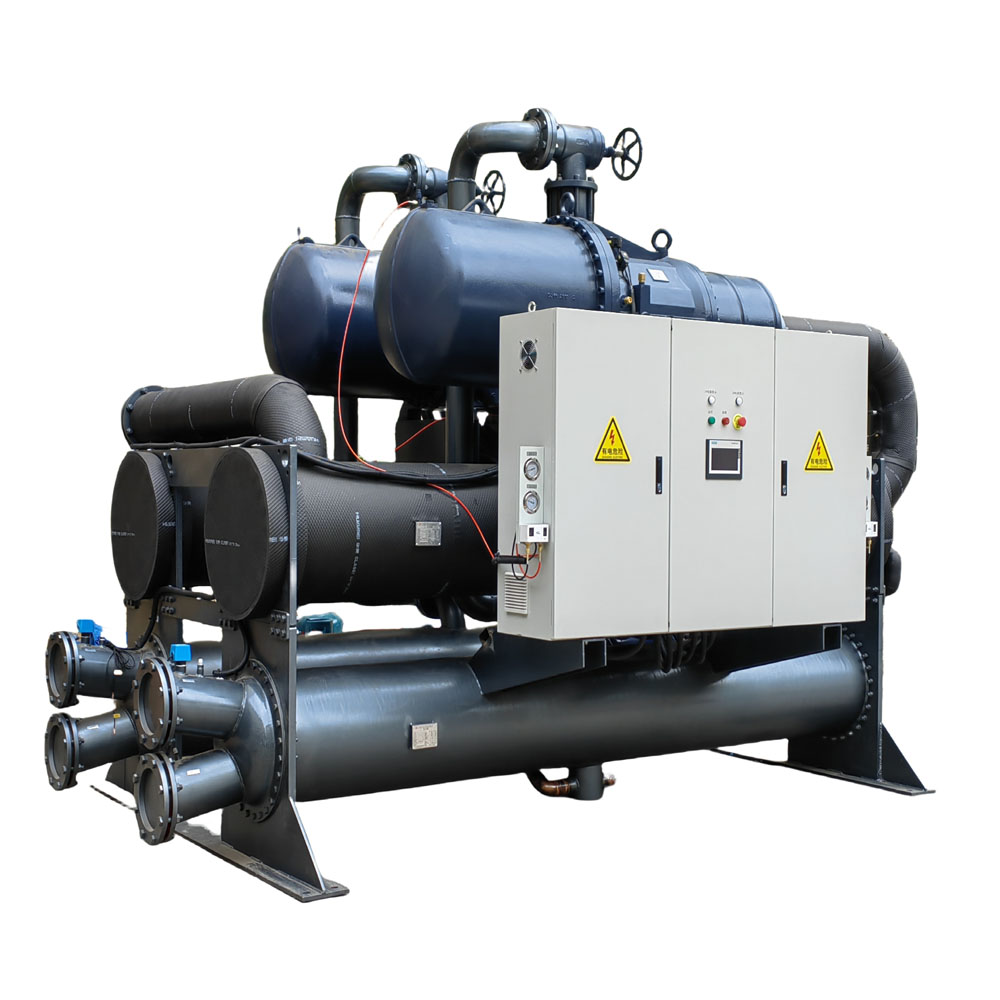
Какую роль играют водоохладители в регулировании температуры?
Точный контроль температуры имеет решающее значение во многих промышленные процессы. Охладители воды разработаны для обеспечения точного и стабильного охлаждение, гарантируя, что оборудование и процессы работают в требуемом диапазоне температур.
Способность охладители воды поддержание постоянной температуры особенно важно в приложениях, где даже незначительные изменения могут повлиять на качество продукции или производительность оборудования. Например, в химической и фармацевтической промышленности точный контроль температуры необходим для химических реакций и производства лекарств. Аналогично, в электронной промышленности поддержание оптимальной температуры предотвращает перегрев и обеспечивает надежность чувствительных компонентов. Предлагая точные контроль температуры, охладители воды повысить качество продукции, сократить отходы и повысить общую эффективность работы.
Как водоохладители могут повысить производительность и сократить время простоя?
Производительность является ключевым фактором успеха в любой промышленной среде. Охладители воды способствовать увеличению производительность гарантируя эффективную работу оборудования и процессов без перебоев из-за перегрева.
Предоставляя надежные охлаждение, охладители воды предотвратить отказы оборудования и сократить время простоя, что позволяет операциям работать гладко. Эта непрерывная работа минимизирует производственные потери и помогает последовательно достигать производственных целей. Более того, эффективный охлаждение продлевает срок службы оборудования, снижая необходимость в частом обслуживании и замене. Наш Промышленные охладители для текстильной промышленности разработаны с учетом особых требований текстильного производства, обеспечивая непрерывную и эффективную работу.
Подходят ли водоохладители для бесшумной работы?
Тихая работа является важным фактором во многих промышленных и коммерческих условиях. Чиллеры с водяным охлаждением как правило, тише, чем чиллеры с воздушным охлаждением поскольку они не используют большие вентиляторы для рассеивания тепла.
В с водяным охлаждением система, тепло передается в вода а затем удаляется через градирня или другие средства, которые обычно производят меньше шума, чем вентиляторы, используемые в с воздушным охлаждением системы. Это делает чиллеры с водяным охлаждением отличный выбор для сред, где снижение шума является приоритетом, таких как лаборатории, больницы и офисные здания. Минимизируя уровень шума, охладители воды способствовать созданию более комфортной и продуктивной рабочей среды.
Какова окупаемость инвестиций в системы охлаждения воды?
Инвестирование в система охлаждения воды может дать значительный возврат инвестиций (ROI) через различные пути. Первоначальные инвестиции в чиллер с водяным охлаждением может быть выше по сравнению с с воздушным охлаждением вариантов, но долгосрочные выгоды часто оправдывают затраты.
Экономия энергии вносят значительный вклад в рентабельность инвестиций. Чиллеры с водяным охлаждением более энергоэффективны, особенно в теплом климате, что приводит к снижению эксплуатационных расходов расходы со временем. Кроме того, расширенный срок службы и сниженные требования к техническому обслуживанию охладители воды приводит к снижению долгосрочных расходов. Улучшение производительность и уменьшено время простоя также способствуют более высокой окупаемости инвестиций, обеспечивая постоянный выход и минимизируя производственные потери. Кроме того, способность поддерживать точный контроль температуры повышает качество продукции, сокращая отходы и повышая удовлетворенность клиентов.
Как выбрать правильный охладитель воды для вашего случая?
Выбор подходящего охладитель для вашего конкретного применения требует тщательного рассмотрения нескольких факторов. Первый шаг — определить ваш потребности в охлаждении, включая необходимые охлаждающая способность и температурный диапазон.
Как только у вас будет четкое понимание ваших требований, вы сможете оценить различные типы доступны охладители, такой как с воздушным охлаждением и с водяным охлаждением Варианты. Рассмотрите такие факторы, как температура окружающей среды, доступное пространство, затраты на энергию, и вода доступность при принятии решения. Также важно оценить проектирование системы и убедитесь, что охладитель может быть легко интегрирована с вашей существующей инфраструктурой. Наша команда экспертов может помочь вам выбрать правильный охладитель для вашего применения, гарантируя оптимальную производительность и эффективность.
| Особенность | Чиллер с воздушным охлаждением | Чиллер с водяным охлаждением |
| Установка | Проще, не требуется отдельного водоснабжения | Более сложная, требует водоснабжения и, возможно, градирни |
| Эффективность | Ниже при высоких температурах окружающей среды | Выше, особенно в теплом климате |
| Обслуживание | В целом более низкие эксплуатационные расходы | Более высокие затраты на техническое обслуживание из-за компонентов системы водоснабжения |
| Уровень шума | Выше из-за вентиляторов | Более низкая и тихая работа |
| Стоимость энергии | Выше в теплом климате | Более низкий, более энергоэффективный |
| Использование воды | Без использования воды | Требуется постоянное водоснабжение |
| Требования к пространству | Может быть больше из-за размера вентилятора | Меньшая занимаемая площадь, но может потребоваться место для градирни |
| Первоначальная стоимость | Обычно ниже | Выше из-за дополнительных компонентов |
| Эксплуатационные расходы | Выше из-за меньшей эффективности в теплом климате | Ниже из-за более высокой эффективности |
| Продолжительность жизни | Обычно короче из-за воздействия условий окружающей среды | Более длительное и менее подверженное суровым условиям воздействие |
| Контроль температуры | Менее точный при колебаниях температуры окружающей среды | Более точный и стабильный контроль температуры |
Часто задаваемые вопросы
1. Какова основная функция чиллера?
Основная функция охладитель заключается в отводе тепла из процесса или пространства путем циркуляции охлаждающей жидкости, как правило вода, через охлаждение цикл. Чиллеры используются в различных промышленные применения для поддержания оптимальных рабочих температур, обеспечения качества продукции и долговечности оборудования.
2. Каковы основные различия между чиллерами с воздушным и водяным охлаждением?
Чиллеры с воздушным охлаждением использовать окружающий воздух к прохладный the хладагент, пока чиллеры с водяным охлаждением использовать вода из а градирня или другой источник. Чиллеры с воздушным охлаждением их проще устанавливать и обслуживать, но они могут быть менее эффективны при высоких температурах. Чиллеры с водяным охлаждением больше энергоэффективный но требуют последовательного водоснабжение.
3. Как водоохладители повышают энергоэффективность?
Охладители воды усиливать энергоэффективность используя превосходные свойства теплопередачи вода. В чиллеры с водяным охлаждением, вода используется для отвода тепла от конденсатор, что более эффективно, чем использование воздуха. Это позволяет охладитель работать на более низких конденсация температуры, что снижает потребление энергии.
4. Почему контроль температуры важен в промышленных процессах?
Точный контроль температуры имеет решающее значение во многих случаях. промышленные процессы для обеспечения качества продукции, производительности оборудования и эффективности работы. Например, в пластмассовой промышленности поддержание правильной температуры во время формования имеет важное значение для целостности продукта. В пищевой промышленности и производстве напитков контроль температуры имеет решающее значение для безопасности и сохранности пищевых продуктов.
5. Как водоохладители могут сократить время простоя?
Охладители воды сократить время простоя за счет предоставления надежной охлаждение, что предотвращает перегрев и выход оборудования из строя. Гарантируя, что машины работает в оптимальных температурных диапазонах, охладители воды минимизировать перерывы и поддерживать непрерывность производства.
6. Какие факторы следует учитывать при выборе охладителя воды?
При выборе охладитель воды, рассмотрите ваш потребности в охлаждении, включая необходимые охлаждающая способность и температурный диапазон. Оцените такие факторы, как температура окружающей среды, доступное пространство, затраты на энергию, и вода доступность. Кроме того, оцените проектирование системы и обеспечить охладитель может быть интегрирована с вашей существующей инфраструктурой. Как эксперты в чиллерный бизнес, мы также рекомендуем учитывать особые требования вашей отрасли. Например, наши Промышленные охладители для бетонных заводов специально разработаны для решения уникальных задач производства бетона.
Краткое содержание
- Охладители воды имеют важное значение для поддержания оптимальной температуры в различных промышленные применения.
- Чиллеры отвод тепла через охлаждение цикл, используя либо с воздушным охлаждением или с водяным охлаждением методы.
- Чиллеры с водяным охлаждением предложить более высокую энергоэффективность и точный контроль температуры.
- Охладители воды усиливать производительность за счет сокращения времени простоя и обеспечения непрерывной работы.
- Выбор правильного охладитель включает в себя рассмотрение потребности в охлаждении, окружающий условия и проектирование системы.
- Инвестирование в система охлаждения воды может дать значительный возврат инвестиций через экономия энергии и повышение эффективности работы.
- Охладители воды разработаны для легкой интеграции в широкий спектр приложений. Наши Промышленные охладители для гидропоники являются свидетельством этой универсальности, обеспечивая точное охлаждение для гидропонных систем.
- Для специализированных применений, например, требующих взрывозащищенных решений, мы предлагаем специальные опции, такие как наши Взрывобезопасные охладители.
Понимая преимущества и соображения охладители воды, предприятия могут принимать обоснованные решения для оптимизации своей процессы охлаждения и достичь долгосрочного успеха. Если у вас есть еще вопросы о преимущества использования а охладитель воды, пожалуйста, не стесняйтесь обращаться к нам. Наша команда нацелена на предоставление экспертных рекомендаций и поддержки, чтобы помочь вам найти идеальное решение для охлаждения, которое будет соответствовать вашим потребностям.
